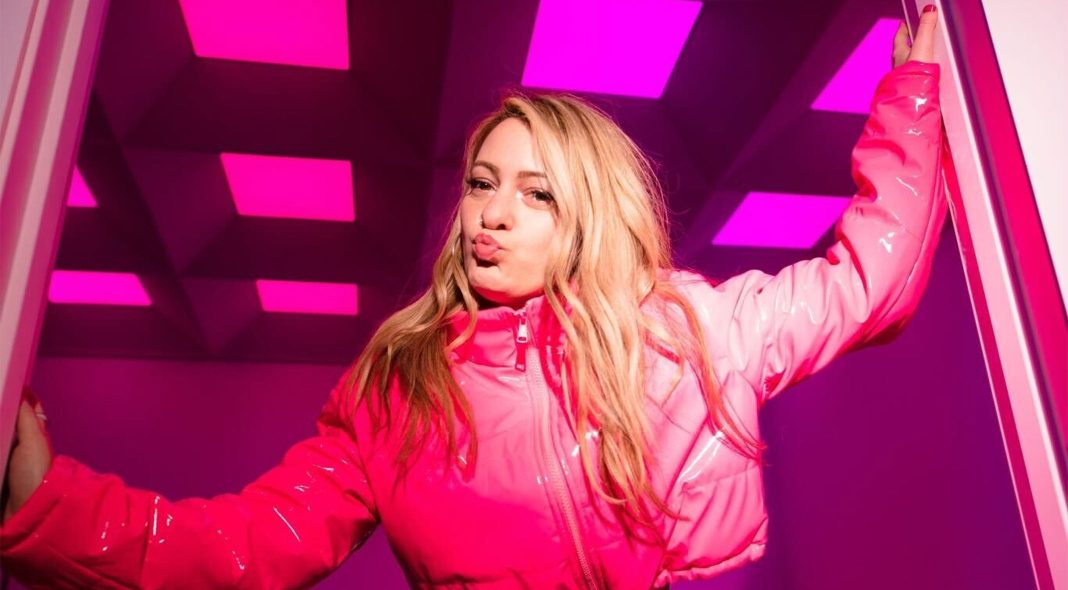When Hollywood actress Alyssa Milano re-sparked the phrase ‘MeToo’ as a global movement in 2017, it sent shockwaves across the entertainment industry, opening up vital conversations about abuse, misogyny, sexism and the endless demeaning or outright dangerous situations that women were pressured to put themselves in if they wanted to get by in a man’s world. It was a time of deep pain and suffering, but also one of hope, feeling that by bringing this endemic behaviour to light, we might finally be one step closer to ending it.
Fast forward to 2023 and things seem a little different, especially in music. Rightly or wrongly (depending on how you feel about severity, forgiveness and retribution) some of the artists who were ‘cancelled’ or accused in that initial time period — Ryan Adams, Pinegrove, Cuco — have been able to stage some degree of a comeback, while there are numerous others that have been able to weather notable controversy and credible allegations without it impacting on their career.
In some cases, the publicity yielded from the ‘scandal’ of mistreating women may have even helped. Kodak Black featured on the most recent Kendrick Lamar album despite taking a plea deal over the alleged abuse of a schoolgirl, Arcade Fire got to complete an arena-scale lap of North American despite allegations against frontman Win Butler, while Kanye West infamously gave Marilyn Manson a platform at Madison Square Garden. Even more recently, disrespect of women wages on; just this week, Tory Lanez has requested a retrial in the Megan Thee Stallion shooting case, while fans have been criticising pop comeback kids Busted for working with Simple Plan and All Time Low, two acts who have at one time or another had members who have been accused of behaving inappropriately with fans.
All things considered, it’s perfectly reasonable to think that MeToo’s inroads into the music industry have been a bit of a damp squib. But even while a ‘reckoning’ might not be tangibly felt in the mainstream (or apparently, in the courts), some artists are still actively pushing back, putting into words what others may be too afraid, too disempowered or otherwise too unbothered to say. Enter LA-based singer-songwriter Hannah Collins, aka Scene Queen, whose song “18+” is currently blowing up on TikTok as a damning critique of normalised misogyny and predatory behaviour towards underage music fans.
An artist who might be perceived as musical Marmite, Scene Queen knows full well that her melding of metalcore and feminist themes won’t be for everyone. And yet, there is something in her aesthetic presentation of ‘bimbocore’ that serves as a protest within itself. Her music is feminine and satirical and unashamedly Barbie-pink in a way that metal has historically disavowed, but it has a steely core, a brutal, no-nonsense attitude that rallies other people to call out bullshit as they see it. Even the quickest of glances through the comments on ‘18+’ will reveal the name of the specific band that fans suspect she is writing about, but it almost doesn’t matter. This song is about calling out an entire way of being, a ‘sex drugs and rock n roll’ myth that sees teenage girls as collateral: “Pink wristbands on the guest list / Bras hanging on the bus / Yeah, you get a lot of girls / But not one is eighteen plus.”
Donating a portion of the proceeds of ’18+’ to survivor-support charity RAINN, Scene Queen posted in the YouTube comments to offer deeper clarity: “Having people arguing over which band I might be upset with, arguing over security measures taken place in the scene, or even arguing whether the lyrics are good or just borderline unsettling is the exact point of the song: to get people talking about what we’ve refused to talk about in the scene the last ten years,” she says. “When I left the scene around 2015 because it no longer felt like a safe space for women, I swore that if I ever came back, I would make it my mission to set fires until it was safe.”
This fire setting has indeed been kindling for some time, especially in alt-rock spaces. While people are often quite comfortable with pointing out the overt sexuality, violence and female degradation that is visible in hip-hop, less attention is given to predominantly white genres, where the messaging can be just as harmful. For anyone who grew up in the 00s, you need look no further than at the Panic At The Discos, Taking Back Sundays or Cute Is What We Aim Fors of the world to find lyrics that were fairly impressive in their flowery language and tragic metaphor, but still tended to depict women as the root cause of poor male self-esteem, mockable if they didn’t match up to a certain standard of sexuality or femininity. While emo and pop-punk are praised as safe havens for sensitive or emotionally-vulnerable teens, they can also weaponise this vulnerability, turning it back on fans when an artist need a reason to excuse their harmful behaviours.
In the seemingly more enlightened era of the 2020s, artists like Hayley Williams have been able to speak about the rampant exclusion or misogyny in punk spaces with valuable clarity and insight. But at the time, it was extremely normal to see hear bands making sexualised quips about their young fans from the stage, or encouraging the throwing of bras and signing of breasts at the merch stand. Where women did feature in bands, they were fetishised and talked about in terms of their ‘groupie’ status, appraised on their looks or potential sexual abilities. Jokes have been abound for years that emo dudes never really get over their awkward teen years of not getting any girls, so in male-centric spaces like Warped Tour, the sea of attentive underage female fans feels like a do-over, an opportunity to shamelessly exploit your new-found status and power before rolling onto the next city and doing it all over again. If all the other bands are doing it, or your genre has a long history of this kind of behaviour, it doesn’t take long to convince oneself that it’s OK and just part and parcel of being a rock ‘n’ roll star.
Of course, abuse and misogyny is not exclusively a pop-punk problem. Next month, Alice Glass will embark on a UK tour of her self-titled debut album, inspired in part by the horrendous abuse that she alleges at the hands of her ex-bandmate Ethan Kath in their time as electro-duo Crystal Castles. Last year, indie-pop singer-songwriter Sophie May’s single ‘I’m With The Band’ became a sleeper hit, striking a nerve with anybody who knew what it was like to “still romanticise” the manipulative affections of an older musician long after the fact. When Scene Queen chants “18+, 18+, get those children off your bus!” or “I’ll go full ice pick lobotomy / If I see one more notes-app apology”, she may be making her point much more directly than Glass or May, but all three artists demonstrate the ease with which young women can be taken advantage of, swept up an industry that tells them they’re old enough to know what they’re doing, while simultaneously abdicating much older men from taking any kind of responsibility.
Whether it’s calling out specific bands or speaking to the normalisation of sexual misconduct more generally, the floodgates that MeToo opened cannot be closed, and neither should they be. An issue that goes far deeper than any one specific music scene, abuse thrives on silence. It relies on survivors being too afraid that they won’t be believed or of lucrative bands being placed on such a pedestal that no industry whistleblowers want to rock the financial boat. It depends on people feeling that it’s too late to speak out about something they experienced as a teenager but didn’t have the language to critique, or that a certain behaviour is so entrenched in musical culture that they’ll be perceived as over-reactive when they do feel ready to speak out. The women who sing about their own experiences and perspectives on their scene often do so at great personal risk, knowing that it will attract trolls or that it may even put a ceiling on their career, with high-up male execs not wanting to work with women who might ‘cause trouble’.
And yet, it is songs like “18+” or ‘I’m With The Band’ that give survivors hope, that make them feel like their stories haven’t been forgotten. Whether you like these artists musically or not, their desire to wade into these topics is something to be applauded – or at very least, something that should trigger important conversations with ourselves about the behaviours we’re willing to turn a blind eye to when it involves the music that we love. Scene Queen is making no bones about her mission to start fires to keep the scene safe, and as far as we’re concerned, we should all be right there with her; matches and lighters in hand.







